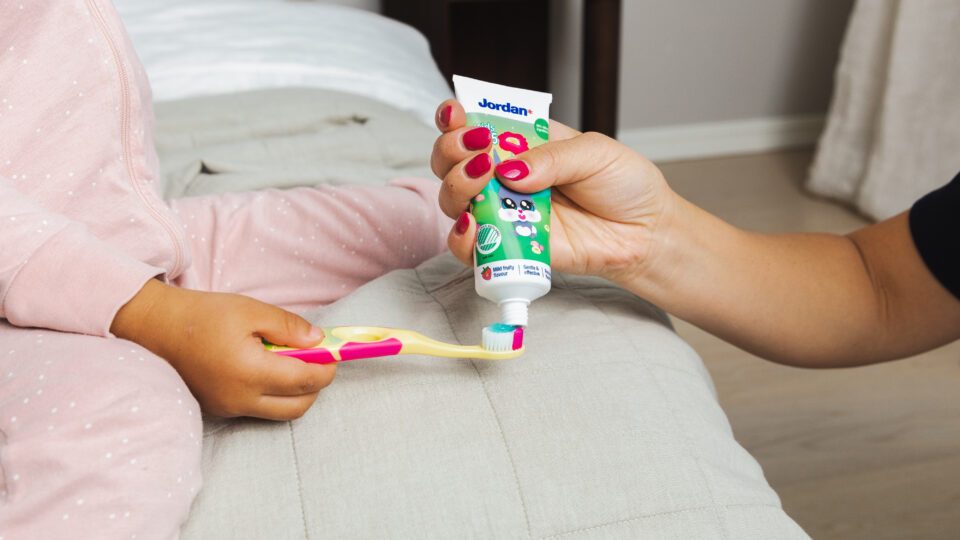Receding gums: What to do?
There might be several reasons behind receding gums. Gum disease and a wrong brushing technique are only some of them. Here are some tips if you notice more of your teeth starting to show.

The first signs of receding gums are often gum bleeding and bad breath. If the inflammation/ gingivitis is not treated, it might over time develop into more serious conditions like periodontitis.
The result of advanced periodontitis is that the gums withdraw. That can leave you with exposed tooth necks and “long” teeth. This is a condition that develops slowly. The gums might be swollen and red, but oftentimes the condition has few or no symptoms. In time, there will appear “pockets” between the gums and teeth where bacteria can gather, and the teeth can eventually fall out.
Brushing too hard
If your gums have receded because of periodontitis it is important to have good oral care and regular appointments with a dental professional.
If your gum recession is caused by excessive or wrong brushing technique, an increased focus on dental care might worst-case scenario increase the problem. In this case, you need guidance on how to brush your teeth correctly. Damages from brushing is a common reason for receding gum. It appears because of the subsequent wear on the gums from the excessive force when brushing exposing more of the teeth.
If you are unsure if your receding gum is caused by brushing too hard, you can check your upper canine teeth. This is often the first sign of a withdrawn gum caused by brushing damage.
Some might brush so hard that you brush away some of the tooth substance. In that case, teeth sensitivity to cold food or beverages can be a symptom.
What to do about receding gums?
It is always recommended that you consult with a dental professional if you suffer from gum recession. There you will get the correct diagnosis and tips to avoid the development of the problem.
If you have an inflammation in your gums or gingivitis, it must be treated by a dental professional. In the case of periodontitis, the dentist has to remove tartar and inflammatory tissue.
With correct treatment and better dental hygiene, the prognosis is good. Use a soft toothbrush and a light hand when brushing.
Reasons for gum recession:
- Too hard, or excessive brushing more than twice a day
- A toothbrush with too rough bristles, or toothpaste with harsh abrasives
- A poor oral care routine leading to inflammation/ gingivitis and periodontitis
- Tobacco products can cause increased plaque, and in time cause periodontitis
You might want to read


Yellowing teeth: Myths and causes
Teeth discolouration is something we all have to deal with at some point in our life. There are several reasons that cause the yellowing of…
Read more
How much toothpaste should kids use?
Jordan's step toothbrushes come with a toothpaste guide, but how much toothpaste should children use at what age? Here's a guide for every stage of…
Read more